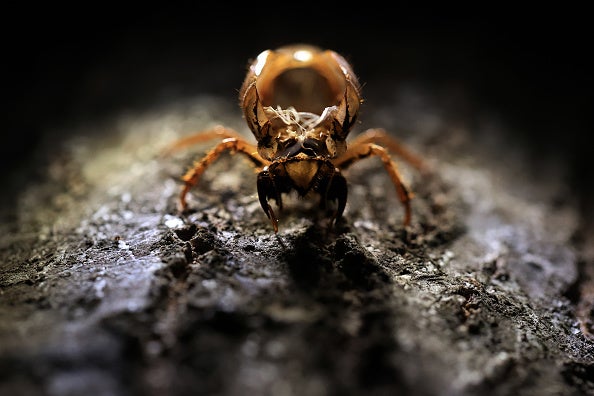Cicadas: Where are they in the US and when will they leave?
Here is everything we know about our cicada friends

The cicadas have awoken up from their 17-year slumber and are making their presence known across America.
You won’t need to be alerted of the presence of the Brood X if you are in any of the following areas: Delaware, District of Columbia, Georgia, Illinois, Maryland, Indiana, New York, Ohio, Tennessee, Pennsylvania, Virginia, Michigan and North Carolina.
One of the audible insects even made it to CNN Chief Congressional Correspondent Manu Raju’s jacket during a live shot on Capitol Hill.
They also forced at least one swanky Washington DC wine bar to shutter temporarily even after it recently reopened after Covid-19 restrictions.
That loud buzzing noise they make is their actually mating call. Following their 17 long years underground, they emerge to find a mate.
"It's all boys calling girls," Eric Day, an entomologist, said to CNN. "First you get a few here and there, then what happens is they start chorusing — there's so many of them that the cicada calls all combine in this huge chorus."
However, this particular kind only appears in the continental U.S so the sighting is comparatively rare for bug lovers as Brood X made their last appearance in 2004.
However, like a lot of species, there are worries about their habitat and the wider impact of the climate crisis.
Even if you find them a pest, know that they have a great impact on the environment, according to the The National Wildlife Federation.
Their website reads that “cicadas are mostly beneficial. They prune mature trees, aerate the soil, and once they die, their bodies serve as an important source of nitrogen for growing trees.”
If you are worried about property damage, key members of the self-styled Cicada Crew based at University of Maryland offer reassuring words.
"There's very little evidence that cicadas do any damage at all," Paula Shrewberry, a entomologist, said to CNN. “Egg laying can damage the tips of the trees, and the tips of the trees will die back — it's called flagging,"
Believe it or not, some chefs have taken the opportunity to develop cicada-based recipes, which are edible and a great source of protein. Appearing on NPR’s All Things Considered program, Xavier Deshayes, a chef specialising in cicada recipes, said insects were the food of the future.
“Insect is going to be the protein of the future. You know, insect farming is very sustainable when you compare to cows or any other animal farming, you know - less fossil energy, less water, less space, less food, you know what I mean? So when you look at it on the end, insect farming has every way of being profitable,” he said to Michael Martin.
If you were wondering when they would be no longer landing on your picnic, experts estimate roughly around July.
“The warmer it is, and the drier it is, the sooner these insects will complete their reproductive cycle and the adults will expire,” Entomologist Timothy Best said to Prevention.
Join our commenting forum
Join thought-provoking conversations, follow other Independent readers and see their replies
Comments
Bookmark popover
Removed from bookmarks